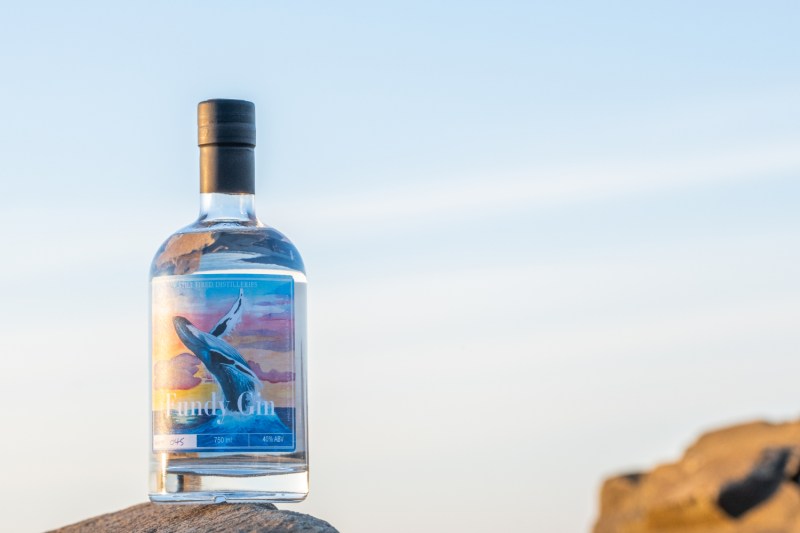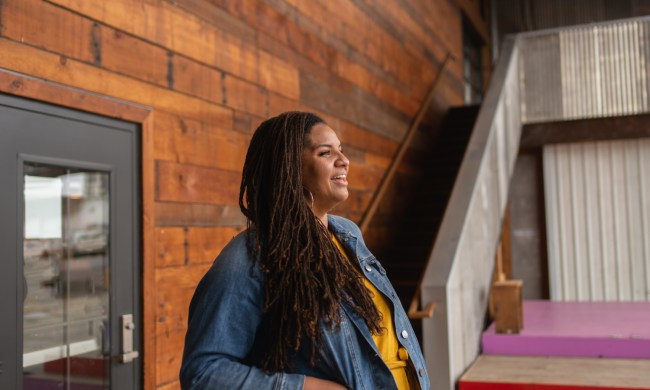These days, brands are giving back more than ever. It’s an uplifting movement that puts a real and caring face on companies, whether they’re drinks businesses, clothiers, or equipment manufacturers.
Up in Nova Scotia, Still Fired Distilleries

You heard right, underwater welders. Still Fired was co-founded by two of them, Andrew Cameron and Owen Ritchie. The two had a career in the decidedly niche commercial diving business, taking on engaging yet dangerous projects in the icy waters of the northern Atlantic Ocean. Turns out, some of those highly specialized skills paved the way for the distillery.
“I never thought that I would be able to find a different venture that could keep me on my toes as much as commercial diving, but I was very wrong,” says Cameron. “Transitioning into the spirits industry was exhilarating, terrifying, and overwhelming at times but also significantly warmer than a diving career in the Atlantic Ocean.”

Cameron and Ritchie used their welding prowess to build the first “legal” stills in Atlantic Canada. It was a savvy move that significantly lowered start-up costs, as the crucial equipment can be prohibitively expensive. It was the foundation for starting the brand, which the duo officially did in 2015.
Gin was always going to be a focus, as Cameron and Co. had a real appreciation for the stuff. “Long before we established the distillery, we used to get mocked (only slightly) for choosing to drink gin in an industry full of whiskey and rum drinkers,” Cameron says. The gin renaissance had not yet begun, at least not in North America. “We knew we wanted to create a unique, local gin and we wanted to set it apart from all others.”
How do you achieve such a thing? You hone in on terroir. “The easy answer for us was Dulse,” Cameron continues. “A delicious edible red kelp that offers a plethora of complementary flavor that grows in our big backyard known as The Bay of Fundy. Dulse is a maritime staple, and at the time, we were one of three distilleries globally using seaweed in our gin.”
Unique? Check. Showing a real sense of place? Check. Fundy Gin was not only born but offered an authentic taste of the coastal province. But it did not come easy. “A good gin is a fascinating and frustrating labor of love that requires an abundance of time, energy, and finesse,” Cameron says. “To create a quality gin, you have to find a perfect blend of botanicals, and measure them to a specific quantity so they all complement each other, without having one overpower another.”
Still Fired opted to go with a trilogy of ingredients that grow right nearby in juniper, angelica root, and dulse. The seaweed in particular is hand-harvested and dried, offering a hint of smoke and brininess on the palate. The resulting gin is great neat, not always the case for that particular spirit. Cameron likes it that way too, hit with some citrus or in a Dry Martini format.
The move to give back is a combination of acknowledging consumer awareness and the community Cameron and his team reside in. “The ‘buy local’ movement has completely changed the way consumers are shopping, and businesses are conducting themselves accordingly,” he says. “Customers are educating themselves more on what their definition of local means and they want to feel like their purchases are helping those around them. This was an essential component of our business plan, as we live in the small town of Annapolis Royal, Nova Scotia, a place rich with history, culture, and community, where giving back is the way of life.”
Thus far, Still Fired has raised $10,000 for the Whale Sanctuary Project. Cameron says the ultimate goal is to raise ten times that amount within the next five to seven years. The partnership came about after the project announced that it would establish its headquarters in Nova Scotia. The two sides met and have been supporting each other since. Nova Scotia proudly promotes itself as Canada’s ocean playground and we all love and respect our oceans,” says Cameron.
The plan is to keep up the marine support going forward. And there’s more in store for the brand, including a bartender competition that will be held in New York. The grand prize, Cameron says, is a trip for two to their stomping grounds. “We plan to show the winners everything this ocean has to offer and we believe that these are the perfect first steps to creating awareness,” he says.


